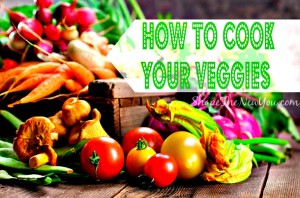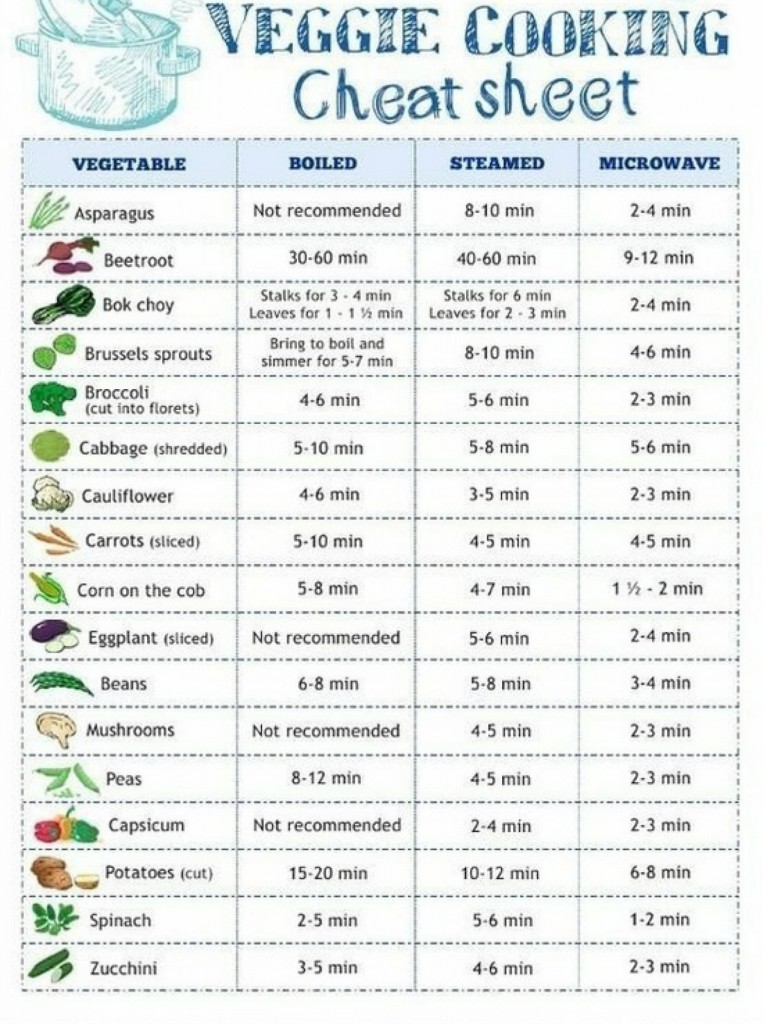Vegetables are a crucial component of a nutrient-rich diet. While eating them raw is an excellent way to get all the vitamins and nutrients they have to offer, some vegetables are impossible to eat raw, and some people cannot tolerate raw vegetables. The question then becomes, “What is the best way to prepare veggies to preserve the most nutrients?”
Minimizing Nutrient Loss
Vegetables contain enzymes that both synthesize and degrade vitamins. After the vegetable has been picked, vitamin synthesis stops, but degradation continues. To slow the degradation of vitamins, most vegetables should be kept refrigerated until used. Some vitamins are easily destroyed by oxygen, so cut vegetables or juiced vegetables should be stored in airtight containers in the refrigerator. Water-soluble vitamins, such as vitamin C and the B-complexes, are the most vulnerable of the nutrients, but both vitamins and minerals can be lost when they dissolve in water that is then discarded. There are 3 good ways to cook vegetables and retain most of their nutrients.
Pressure Cooking
This method of cooking uses a very small amount of water, which is sealed inside the cooker along with the food and builds up pressure turning the water into steam (which then cooks the vegetables, retaining their color and nutrients). It is also a very fast way to cook vegetables… maybe a minute or 2.
Microwave
Because microwave cooking is so rapid, there is very little loss of nutrients in food, providing that too much water is not used. To cook asparagus, for instance, you only need about 2 or 3 tablespoons of water in the bowl. It essentially steams the vegetables.
Steaming
Using a steamer is a very effective method of cooking vegetables, as long as you don’t use too much water and you don’t cook them too long. A half cup of water is all you need, and it’s a good idea to bring the water to a boil first. 5 to 7 minutes is about all you need to steam most vegetables.
Vegetable Cooking In General
Vitamin C is the vitamin that is the most likely to be lost during the cooking process, especially if the vegetables are boiled (and the water is then discarded). If you do boil vegetables, make sure to save the water for use in soups or stocks. The fat-soluble vitamins, such as A and E, are not quite so delicate, and their absorption into the body is increased by lightly cooking vegetables.
Frying vegetables is probably the worst for nutrient retention, as the heat is so high, it practically destroys whatever nutrients are in the food. Roasting or grilling, while not as good for retention as the 3 methods above, is better than frying, and roasted or grilled vegetables are very delicious.
Just remember that if you start with plenty of fresh vegetables, and are reasonably careful in their storage and preparation, you will receive a sufficient supply of all the nutrients they provide.
Check out the great Veggie Cheat Sheet below for some pointers!








